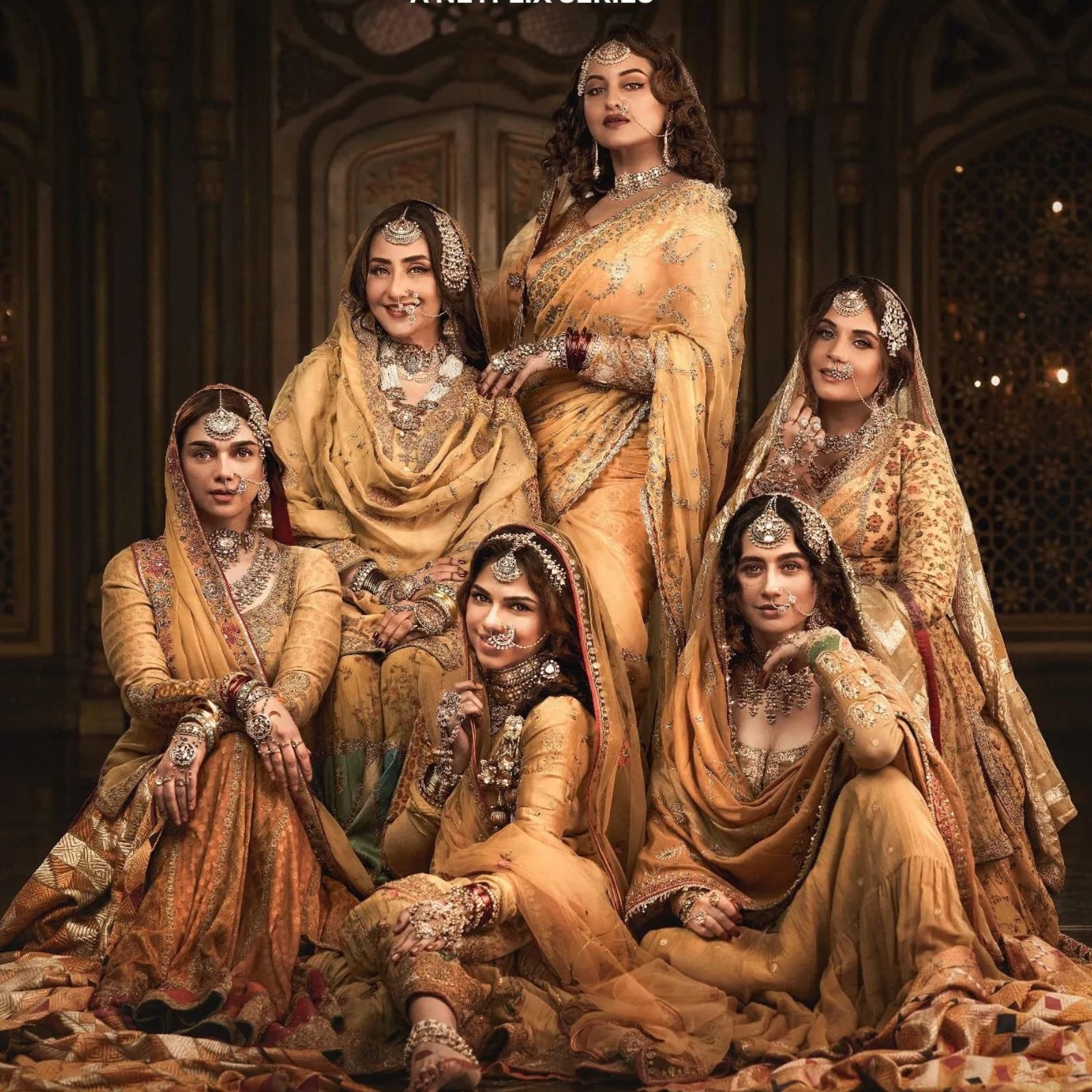By: Nadia Stephen
Indian filmmaker Sanjay Leela Bhansali’s latest web series, Heera Mandi, dives deep into the pre-Independence era, focusing on the revolutionary campaign against British rule in the Indo-Pak regions, particularly Lahore. This series is not just entertainment; it is a grand piece of art revealing the darker stigmas of society.
The Narrative of Oppression and Power Dynamics:
Heera Mandi, portrays a society where the weak are oppressed, and the powerful grow stronger. The narrative highlights that every period of oppression inevitably meets its end, but often at a high cost. The series illustrates the grievances of societal stigmas by depicting two groups: the privileged ‘Nawabs,’ favored under British rule and patrons of courtesans, and the women of the Heera Mandi art school, known for poetry, dance, and seduction, yet stigmatized by society.
Dual Realities of Privilege and Stigma:
While the Nawabs enjoyed their status abusively under British patronage, the women of Heera Mandi, though patronized by the wealthy, were shunned publicly. These women, however, bore the brunt of society’s so-called honorable personalities. The series poignantly acknowledges that the price of freedom is best understood by those who have paid it.
Symbolism of Slavery and Freedom:
The women of Heera Mandi are portrayed as the epitome of slavery, understanding the true value of freedom. The central character, Malika Jaan, dramatically conveys that for courtesans, freedom often comes only through death, encapsulated in her statement, “People fight and gain their freedom; a courtesan gets freedom in death.” This comparison of slavery and harlotry serves as a powerful motivation for those who have never experienced such oppression.
Highlighting Women’s Contributions:
The core of Heera Mandi, is its focus on independence and the significant, yet often overlooked, contributions of women in the campaign for freedom. It echoes the untold stories of wars initiated by men but fought and suffered by women. Historically, women and children have been the most oppressed during conflicts, yet seldom are women recognized for their contributions.
Modern Reflections on Historical Oppression:
The brothel existence depicted in the series stands as a stark reminder of the historical oppression by dominant groups over vulnerable minorities. Despite progress, the modern world still witnesses oppression under powerful authorities. Minorities and weaker groups continue to fight for basic survival and freedom, often feeling liberation only in death.
Universal Quest for Freedom:
In today’s progressive society, the forms of violence and oppression have evolved, but the struggle for freedom persists. Heera Mandi reinforces that freedom is a fundamental right for every human, regardless of color, religion, gender, or cultural differences. Although human rights organizations strive for equality, discrimination remains a visible issue worldwide. The series is a call to recognize and address the ongoing dominance of majorities over minorities and the universal fight for equality and human rights.


